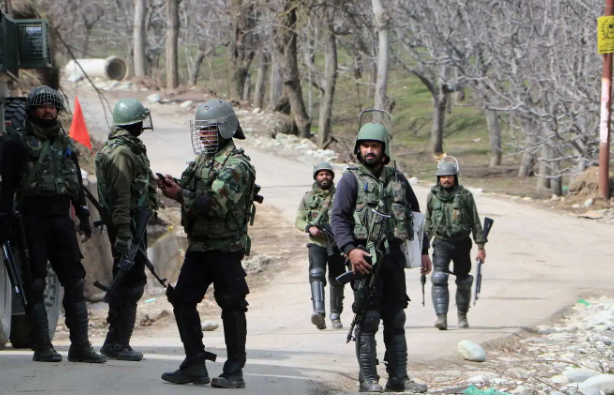
Spy from Pakistan Nabbed Selling Army Uniforms, National Security Breach
Spy in Army Uniforms Salesman Case, Arrest of Alleged Pakistani
The arrest of Anand Raj Singh in Rajasthan’s Sri Ganganagar district has sent shockwaves through the community, highlighting the grave threat posed by espionage activities targeting Indian national security. At just 22 years old, Singh stands accused of betraying his country by allegedly spying for Pakistan’s intelligence agencies, jeopardizing the safety and strategic interests of the Indian Army.

According to reports from Additional Director General of Police (Intelligence) Sanjay Agarwal, Singh’s clandestine activities allegedly involved gathering sensitive information about the Indian Army’s strategic operations and sharing it with three female handlers affiliated with Pakistani intelligence agencies via social media channels. This revelation underscores the insidious nature of modern espionage, facilitated by the anonymity and reach of digital communication platforms.
Spy from Pakistan ,Singh’s background as a businessman, operating a uniform store located outside the Suratgarh Army Cantonment in Sri Ganganagar, provided him with an unsettling proximity to sensitive military installations. Despite the closure of his shop and subsequent employment at a factory in the Behror area, Singh allegedly maintained communication with his Pakistani handlers, perpetuating his nefarious activities under the guise of ordinary employment.
The modus operandi employed by Spy ,Singh involved leveraging his access to confidential military information through undisclosed sources within the Army, exploiting their trust for personal gain. By meticulously collecting and disseminating classified data to his foreign contacts, Singh not only compromised national security but also attempted to profit financially from his treachery, soliciting monetary compensation from his Pakistani handlers in exchange for sensitive intelligence.
The arrest of Spy Singh underscores the vigilant efforts of law enforcement agencies to thwart espionage activities orchestrated by hostile foreign entities. The ongoing monitoring of Pakistani intelligence operations by the Rajasthan Police’s intelligence wing exemplifies a proactive approach to safeguarding the nation’s sovereignty and interests, preempting potential threats before they can materialize.
However, Singh’s arrest serves as a sobering reminder of the persistent dangers posed by espionage, highlighting the need for heightened vigilance and enhanced security measures to counter such threats effectively. The exploitation of digital platforms for illicit communication underscores the evolving tactics employed by hostile actors, necessitating adaptive strategies and technological solutions to combat espionage in the digital age.
Beyond the immediate implications for national security, Spy Singh’s alleged betrayal reverberates as a betrayal of trust and loyalty, tarnishing the reputation of individuals tasked with safeguarding sensitive information. The consequences of such actions extend far beyond the individual perpetrator, casting a shadow of suspicion and distrust over entire communities and institutions.
In the face of such challenges, it is imperative for authorities to remain vigilant and proactive in identifying and neutralizing threats to national security. Enhanced collaboration between law enforcement agencies, intelligence services, and military authorities is essential to effectively counter the ever-evolving tactics of hostile actors seeking to undermine India’s sovereignty and integrity.
Ultimately, the arrest of Spy Anand Raj Singh serves as a stark reminder of the constant vigilance required to defend against external threats and safeguard the nation’s interests. It is a testament to the unwavering dedication and commitment of those tasked with protecting India’s borders and upholding its principles of security and sovereignty.
As the investigation into Anand Raj Singh’s alleged espionage unfolds, it raises critical questions about the vulnerabilities within the security apparatus and underscores the imperative for robust counterintelligence measures. Singh’s ability to operate undetected for an extended period, despite his close proximity to military installations, highlights potential gaps in surveillance and oversight that must be addressed to prevent similar breaches in the future.
Moreover, Singh’s case serves as a cautionary tale about the insidious influence of foreign intelligence agencies, which exploit individuals for their own nefarious purposes. The seduction of monetary gain, coupled with the allure of clandestine communications, poses a formidable challenge to national security efforts, requiring constant vigilance and proactive measures to identify and neutralize such threats.
For the latest updates-click here.


